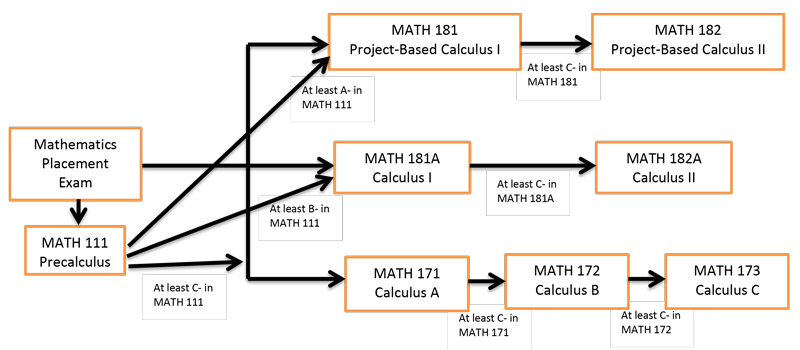

This comes from AP, and sometimes IB, scores in Calculus, Physics, Chemistry, and Biology. In some cases, you might receive an invitation to an honors course alongside a standard placement. If you have questions about test accommodations, please contact the Student Disability Services office at.

What if I need accommodations for the placements tests? The Computer Science exam will be a separate exam held in July. The math, chemistry and language placement tests are found on Canvas. After placement tests are scored, your results will be visible in your Student Portalby August 12. Placement tests will be available the week of May 16 and should be completed by July 22. Language: Take language placement test(s) if you have prior study in a language, even if you don't expect to resume coursework here.Information about the dates and requirements of this exam are detailed below. Computer Science: Students with prior experience in computer science who want to take further study should take the Computer Science placement exam.Chemistry: Students who earned a 5 on the AP Chemistry exam are exempt from the Chemistry Placement Test, but anyone else planning to take General Chemistry should complete it.

Math: Every incoming student must take the Mathematics Placement Test.This page will explain how you receive your placement and what that placement means. You may only register for a course that matches your placement the placement cannot be changed without express consent of the department. Calculus: MATH 130s Elementary Functions and Calculus, MATH 150s Calculus, MATH 160s Honors Calculus), your placement tells you which level or course is the best fit for you. You will need a placement to enroll in courses in Mathematics, Chemistry, Physics, Computer Science, and languages beyond the first-quarter level. All are perfectly acceptable ways to get through calculus and get you to the same place.For subjects offered at multiple levels (e.g. Non-Project-Based 1&2 is somewhere in between. There's a separate track, Calc A/B/C, that covers the same content but over the course of three semesters so it's slightly slower and more accessible. This is the most "advanced" track for a student starting at the beginning of the sequence. The project-based sequence covers calc in 2 semesters (Project-Based Calculus 1 & 2) and involve some more advanced and potentially interesting application or specific topics, including some sort of final project somewhat at the instructor's discretion. There are three "levels" of introductory calculus. In terms of your overall education, it almost never matters at all which math class you start out in when it comes to finishing your degree on time, even if you're a semester or two behind where you hoped to be, it's way, way better to be in an appropriate class so you really get the material and aren't drowning later down the line than to just really push to start out in the most advanced class you get into. Your home department + the math department will take that into consideration and make a recommendation based on what they think will work best for you given your background, score, and major. I took a non-degree program over the summer of 11th grade in Calc 1, it says that I'll overrule the math placement exam exam, but if I did really poorly like an 18% or whatever, would that set off a red flag? Review the main points from whatever classes you've taken and you should be in good shape.

It's a pretty general review of high school level math (expect to see a bit of everything, but not anything super advanced that would for example require a specific stats background). I wouldn't recommend frantically studying for the math placement exam.


 0 kommentar(er)
0 kommentar(er)
